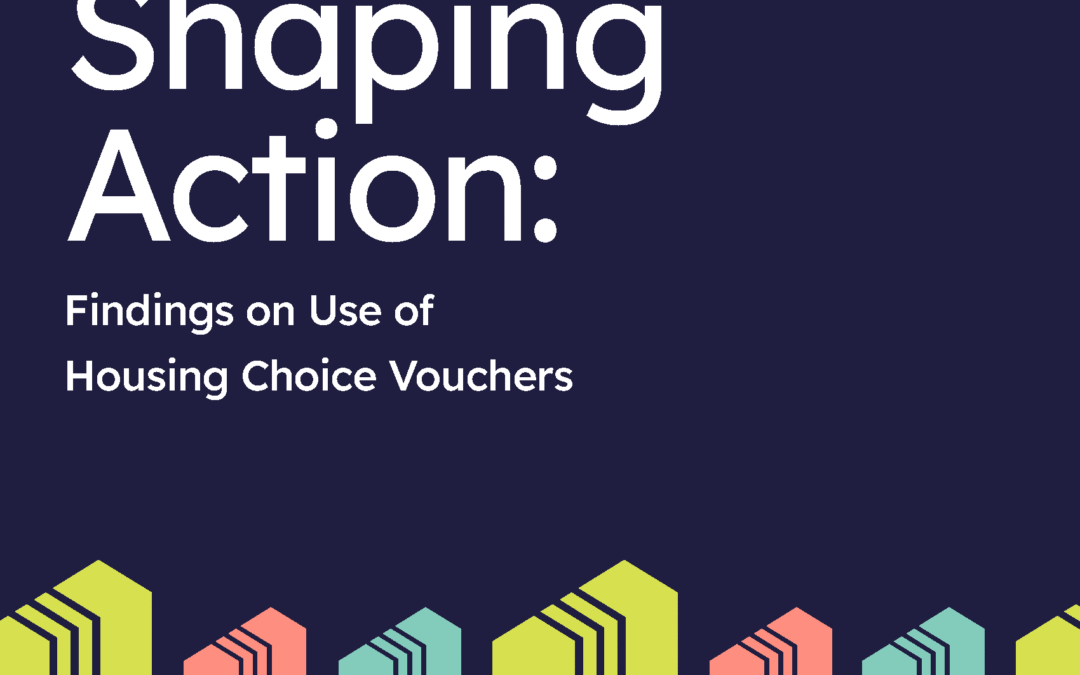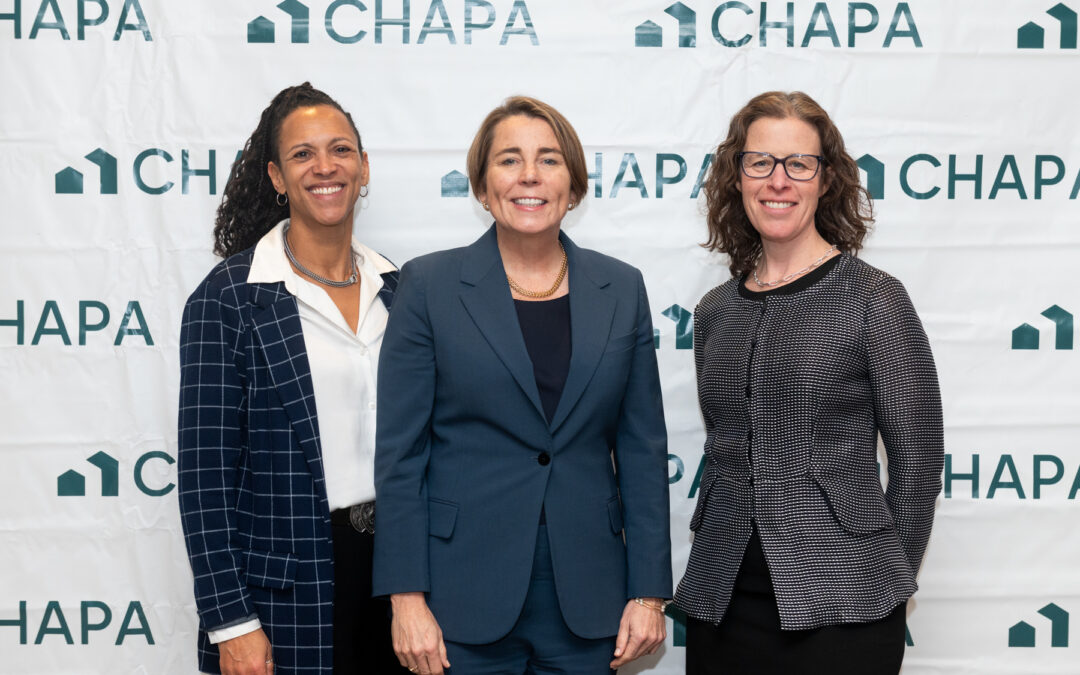
by Jenna Connolly | Feb 4, 2026 | Featured News, Housing News
For more than 50 years, the Housing Choice Voucher (HCV) program–often referred to as Section 8–has been our country’s largest rental assistance program. As of September 2025, more than 92,000 Massachusetts households rely on HCVs. However, funding uncertainty and potential changes to the program, like time limits and work requirements, have threatened the stability of HCVs.
This report shows the program’s direct impact in addressing our state’s housing affordability challenges, promoting housing access and choice across the state, and easing the burden for many households with very low incomes, including working families.
Major Findings:
- 9.2% of all Massachusetts renter households rely on an HCV, compared to 5.6% nationally.
- HCVs are distributed throughout the state rather than concentrated in Boston—only 18% of mobile vouchers are used in the city.
- Mobile voucher holders are less likely to live in a high-poverty area than households in project-based units.
- Older adults and persons with disabilities head the majority of HCV households.
- Length of time in the program exceeds national numbers.
- The majority of “work-able” households are working; however, a not insignificant number show no reported wage income.
Read the full report on our website. Missed the webinar? Watch it in full on YouTube or view the slides.

by Jenna Connolly | Jan 8, 2026 | Featured News, Housing News
We write to share important news about a leadership transition at Citizens’ Housing and Planning Association (CHAPA). After 13 years of dedicated service to CHAPA, including nine years as our Chief Executive Officer, Rachel Heller will be stepping down from her role to become the next Executive Director of Massachusetts Housing Partnership (MHP).
During Rachel’s tenure, CHAPA has grown stronger as a leading voice and convener for the affordable housing and community development field. Under her leadership, CHAPA expanded its advocacy to advance equitable housing opportunities, built new partnerships with diverse stakeholders statewide, and strengthened the organization’s commitment to ensuring affordable housing and choice in every community. While we will deeply miss Rachel’s vision, energy, and steadfast leadership, we are thrilled that she will continue to shape the future of affordable housing in Massachusetts through her new role at MHP.
“On behalf of CHAPA and key Massachusetts housing stakeholders, we are deeply grateful for Rachel’s impactful leadership over the last thirteen years. She both stewarded and expanded CHAPA’s important legacy of advocacy for safe, affordable, and welcoming homes statewide so everyone has a place to call home in the communities they choose,” said Leslie Reid, CHAPA President and Chief of Investment Programs at Massachusetts Housing Investment Corporation. “We are thrilled that she will continue to advance important initiatives toward greater affordable housing access and opportunity for all residents as Executive Director at Massachusetts Housing Partnership.”
CHAPA’s Board of Directors will soon begin a search process for our next CEO. Please stay tuned for the job posting next week. Rachel will continue as CHAPA CEO’s until the last week of February, when our Chief Operating Officer, Maritza Crossen, will step in as Interim CEO. In the meantime, please join us in congratulating Rachel on this exciting new chapter and in celebrating her many contributions to CHAPA and the affordable housing field.
We have so many exciting ongoing initiatives at CHAPA, and we will continue to move full steam ahead towards our strategic goals. Please join us at the upcoming federal forum and the Housing Policy Action Center’s research webinar. Continue to advocate with us for state legislation and budget priorities that further affordable housing opportunity, equity, and access. Our brand new Massachusetts Housing Leadership Academy has kicked off with its first cohort of community leaders dedicated to creating thriving communities, and we can’t wait to share more updates with you as this program progresses.

by Jenna Connolly | Nov 21, 2025 | Featured News, Housing News
Over 400 housing leaders from across the Commonwealth, including Governor Maura Healey, Lieutenant Governor Kim Driscoll, and Executive Office of Housing and Livable Communities Secretary Ed Augustus, convened yesterday to shape how the Commonwealth can boost our housing production and meet the state’s goal of 222,000 homes by 2035. Hosted by Citizens’ Housing and Planning Association (CHAPA), the Housing Summit featured experts in modular housing, infrastructure, and climate innovation who presented creative solutions to meet the Commonwealth’s housing shortage.
“It was inspiring to join so many thoughtful and committed leaders at the CHAPA Summit who have been strong partners in our efforts to make housing more affordable across Massachusetts,” said Governor Maura Healey. “With CHAPA’s support, we’ve made significant progress — passing the Affordable Homes Act, legalizing ADUs by right, creating an Office of Fair Housing and setting the first ever statewide housing production goal. Thanks to this work, we have nearly 100,000 housing starts already underway and we’re going to continue our partnership to build more housing and lower costs for the people of Massachusetts.”
The Summit opened with a panel led by Secretary Augustus and his colleagues from across sectors: Commissioner Adam Baacke, DCAMM Undersecretary for Environment Stephanie Cooper, Undersecretary of Labor Josh Cutler, and Chief Melissa Hoffer. The panel explored how the Commonwealth can work together as a state to meet Massachusetts’ housing goals. Senator Julian Cyr and Representative Andy Vargas gave opening remarks after the panel.
“The Healey-Driscoll Administration knows that we need to accelerate housing production right now to bring down costs and provide relief to renters and homeowners navigating the tight housing market,” said Ed Augustus, Secretary of Housing and Livable Communities. “As we look to what’s next for housing in Massachusetts, we are grateful to CHAPA and today’s summit for convening the best minds in housing policy to brainstorm new solutions and deliver impact.”
Other topics explored during the event included exploring how strategic land reuse, such as the Yes in God’s Backyard (YIGBY) legislation, can dramatically increase housing capacity across the Commonwealth, using innovative construction methods, such as Mass timber, to build sustainable housing faster, and finally how developers will obtain the capital and train the workforce to build the housing needed in communities across the state. Visit the Housing Summit website for the full event agenda with panel topics and speakers.
Building on the lessons learned from the Summit, CHAPA will lead efforts to turn insights into action, creating tangible outcomes that help thousands of Massachusetts residents gain and maintain stable housing.
Summit attendees also heard from experts from Nectar Community Investments, Reframe Systems, Way Finders, Metropolitan Area Planning Council (MAPC), Massachusetts Housing Partnership (MHP), Devens Enterprise Commission, BLD Properties, Northern Middlesex Council of Governments (NMCOG), Community Economic Development Assistance Corporation (CEDAC), Boston Communities, Mass Cultural Council, The Lynch Foundation, the Office of Real Estate Management Division of Capital Asset Management & Maintenance (DCAMM), Father Bill’s & MainSpring, ISC Massachusetts, Boston Housing Authority, Beacon Communities, Allston Brighton Community Development Corporation, Massachusetts Community Climate Bank, Causeway Development, National Housing Crisis Task Force, CREA, State Street, MassHousing, Massachusetts Housing Investment Corporation (MHIC), ICON Architecture, City of Boston, Massachusetts Clean Energy Center, Preservation of Affordable Housing (POAH), Stantec, National Development, Massachusetts Department of Environmental Protection (MassDEP), Harvard University, Graduate School of Design, Capstone Communities, WoodWorks – Wood Products Council, Monte French Design Studio, Code Red Consultants, Leggat McCall Properties LLC, NEI General Contracting, MassINC Policy Center, Just A Start, and Massachusetts American Federation of Labor and Congress of Industrial Organizations (AFL-CIO).

by Jenna Connolly | Nov 6, 2025 | Featured News, Housing News
Citizens’ Housing and Planning Association (CHAPA) opened applications for its new Massachusetts Housing Leadership Academy, a six-month fellowship designed to empower local officials with the knowledge, skills, and network to create more homes for people of all ages, incomes, and abilities in their communities. With a housing shortage of 222,000 new homes needed by 2035 and local decision-making determining much of the Commonwealth’s development, strengthening the voices of pro-housing municipal leaders will benefit Massachusetts’ communities, people, and economy.
“When we work towards creating more housing in every city and town, teachers, nurses, and firefighters can afford to live near their workplace. People can downsize in the communities they love. College graduates can come home,” said Rachel Heller, CHAPA’s chief executive officer. “The Massachusetts Housing Leadership Academy will prepare local leaders to meet the housing needs of all members of their communities so everyone can thrive.”
CHAPA’s Academy is free and open to: Mayors, City and Town Councilors, Planning and Select Board Members, Finance Committee members, and any members of boards and commissions who can impact housing. The Academy’s curriculum will cover the history and causes of the Commonwealth’s housing shortage, municipal solutions, and strategies for taking those solutions from idea to implementation. Fellows will benefit from monthly virtual workshops with housing experts, monthly cohort meetings, and more.
The Massachusetts Housing Leadership Academy builds upon CHAPA’s proven community engagement model. CHAPA’s Municipal Engagement Initiative, a program supporting local pro-housing coalition-building, has worked in 45 communities since 2018 with groups like Engine 6 in Newton and the Greater Newburyport Housing Choice Coalition. In 2023, CHAPA expanded its reach to offer free technical assistance and community engagement to planners seeking compliance with the MBTA Communities Act. 97% of the 85 communities CHAPA supported have now achieved compliance.
“Proactive, inclusive, and informed community engagement can move the needle on creating more housing opportunities,” said Lily Linke, CHAPA’s director of municipal engagement. “From the Cape to the Berkshires, there are countless elected and appointed local officials who are dedicated to solving their communities’ housing challenges, and the Massachusetts Housing Leadership Academy can provide them with the tools they need to succeed.”
The first fellowship of the Massachusetts Housing Leadership Academy will run from January to June 2026. Those interested in the Academy can apply or nominate an official in their community at bit.ly/MAHousingLeadershipAcademy until December 15, 2025.

by Jacob Love | Oct 9, 2025 | Featured News, Housing News
Last week, ProPublica reported that the Trump Administration is considering two major rule changes to federal housing programs that could deprive countless families of housing assistance and put them at risk of homelessness.
Both changes would have to undergo a public comment period prior to adoption. But, if allowed to take effect, they would: (1) permit public housing authorities and private landlords to implement work requirements and time limits for residence in public housing and receipt of certain federal housing subsidies (i.e., Housing Choice Vouchers and Project-Based Rental Assistance); and (2) largely prohibit federal housing assistance from going to qualified people—including many American citizens—who happen to live in a home with an ineligible non-citizen (a “mixed-status” home).
While these regulatory reforms would be devastating for countless families with low incomes across the country, including many here in the Bay State, there is still time to push back. CHAPA strongly opposes both proposals and urges the federal government to reject them.
As we grapple with a nationwide affordable housing shortage and sky-high housing costs, our leaders should be championing proven solutions to our housing challenges. That’s why CHAPA works tirelessly on evidence-backed initiatives to boost affordable housing production, expand supportive housing programs, and implement inclusionary zoning reform.
Those are the kinds of policies we need to ensure that everyone in Massachusetts has access to a safe, stable, and affordable home. However, much like the policies propounded in the Administration’s recent executive order on homelessness, the justifications for these new rule changes run counter to the evidence and hinge on false premises.
Experts cited by ProPublica estimate that opening the door to work requirements and time limits could lead to a staggering 4 million people losing housing assistance. Although the Administration has claimed that these kinds of program constraints help generate “self-sufficiency,” a mountain of research supports that work requirements and time limits do not boost employment. The reality is that such constraints will strip vulnerable families of desperately needed assistance, exposing them to housing instability and homelessness without advancing the Administration’s purported underlying goal.
Likewise, HUD predicts that the new mixed-status rule will cause nearly every subsidy recipient in 20,000 mixed-status homes to relinquish their housing assistance to avoid family separation. This will subject thousands of children, many of them American citizens, to the numerous harmful effects of housing instability. The Administration contends that this change is needed to “ensure that only eligible persons receive benefits.” But not only do they point to no evidence that benefits are going to ineligible non-citizens, HUD’s current rules prevent that by prorating subsidies for recipients in mixed-status homes. Put simply, this change will operate to kick many thousands of eligible people out of vital HUD programs to fix a non-existent problem.
Fundamentally, in the midst of our affordable housing crisis, the facts tell us that more people need access to rental assistance, not fewer. CHAPA thus implores the Administration to drop these cruel and shortsighted proposals, which will only serve to hurt vulnerable families. Until that happens, we encourage everyone to join us in formally opposing the rules during the public comment period and vehemently advocating against their implementation.

by Jordan Stocker | Aug 1, 2025 | Featured News, Housing News
Starting today, August 1, a new statewide policy included in the FY2026 budget and signed by Governor Maura Healey prohibits landlords from charging tenants broker’s fees when the broker was hired by the landlord. Tenants are only responsible for such fees if they choose to hire a broker themselves. The policy also bans landlords from disguising these costs under labels like “admin” or “leasing” fees, and prevents them from conditioning apartment access or lease signings on tenants paying a broker they didn’t select. The change marks a significant shift in Massachusetts rental practices, shifting financial responsibility to the party who actually hires the broker, typically the landlord.
To support implementation, the Executive Office of Housing and Livable Communities (EOHLC) has released a comprehensive FAQ outlining the rights and responsibilities of tenants, landlords, and brokers under the new rules. The guidance clarifies when a fee can legally be charged, how required disclosures must be made, and what steps tenants can take if the rules are violated. The reform marks a major step toward making renting in Massachusetts more affordable and transparent for all.






